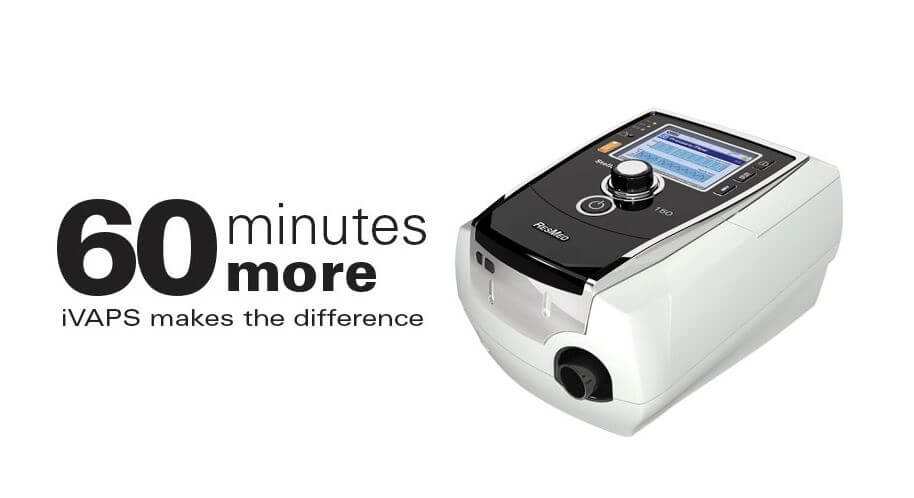Reference
-
Kelly, JL et al. Randomized trial of ‘intelligent’ autotitrating ventilation versus standard pressure support non-invasive ventilation: Impact on adherence and physiological outcomes. Respirology. 2014 May;19(4):596-603.
Africa & Middle East
Americas
Asia Pacific

A recent study1 has shown that patients on a ResMed ventilator with iVAPS technology have adhered to therapy for 60 minutes longer (per session) than when treated with standard pressure support (PS) modes.
Patients preferred iVAPS, which in turn could lead to longer use of NIV. The study concludes that iVAPS “may encourage adherence to therapy for patients newly adjusting to NIV.” 1
The Respirology Journal study indicates that iVAPS improves blood gases as effectively as a standard PS mode, with the added benefit of overall lower pressure support. 1
iVAPS automatically adjusts the level of pressure support to meet the set alveolar target – providing higher pressure support when required and less when not needed. This automatic response reduces the problems associated with setting a much higher overall pressure support, which is only needed at limited times during therapy.
The Jaye study1 suggests that iVAPS could alleviate some of the complex and time consuming elements that are required for effective set up of NIV. The findings conclude: “iVAPS is as effective as pressure support initiated by a skilled healthcare professional in controlling nocturnal hypoventilation. It may facilitate NIV use without extensive prior team experience.”
iVAPS plays an important role in achieving therapy outcomes for your patients–from setting up patients easily and helping them accept NIV, to keeping them adherent on therapy.
Intelligent, automatic and personalised, this advanced technology with an intelligent Back-up Rate (iBR) offers a smart choice for excellence in NIV.
Read more about iVAPS.
Kelly, JL et al. Randomized trial of ‘intelligent’ autotitrating ventilation versus standard pressure support non-invasive ventilation: Impact on adherence and physiological outcomes. Respirology. 2014 May;19(4):596-603.